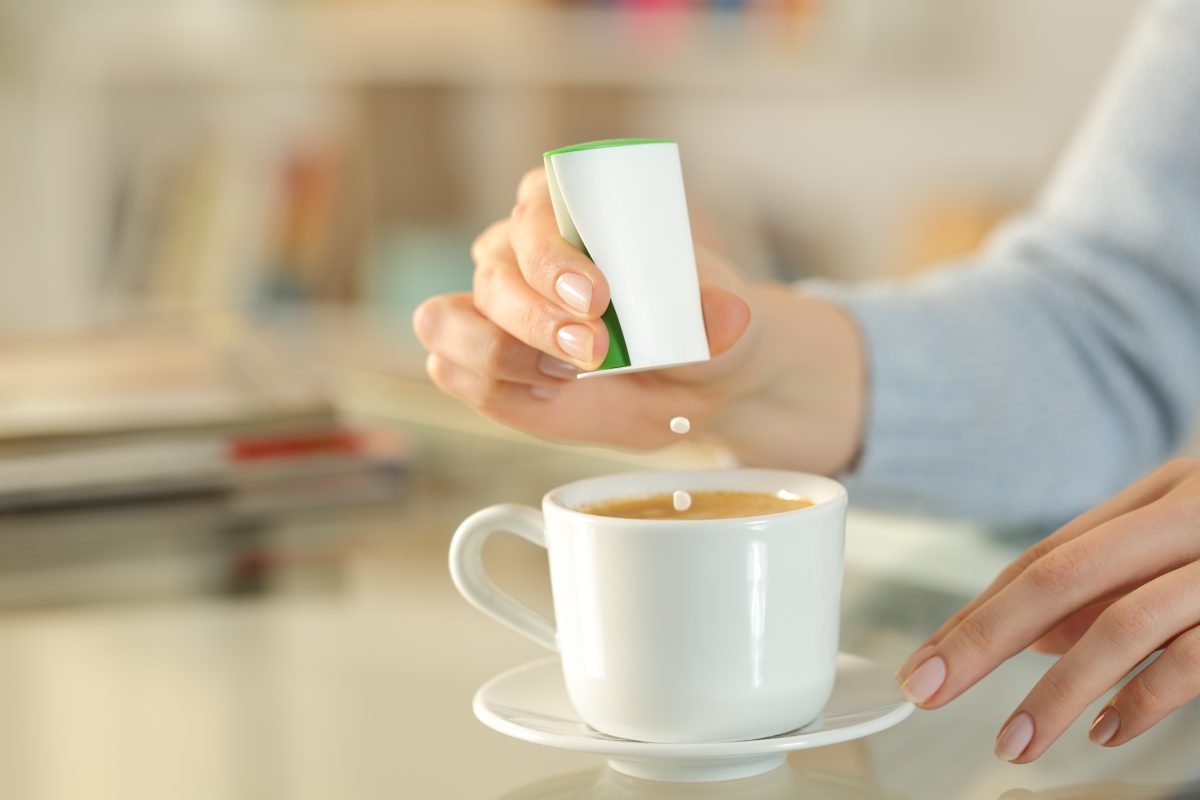Is Sucralose FODMAP friendly?
- Low FODMAP diet
You may be wondering whether the sucralose FODMAP content is low enough to include in a low FODMAP diet.
Sucralose is a sweetener that many people enjoy in their diet, probably without realizing it! However, the sucralose FODMAP content has yet to be tested by Monash University.
In this article, we will discuss what sucralose is, whether it is low FODMAP, and the pros and cons of including sucralose as part of your diet.

Is sucralose FODMAP friendly?
Unfortunately, Monash University has yet to test sucralose. Therefore, the sucralose FODMAP content is unclear, with no guidance on appropriate serving sizes.
However, most professionals consider the sucralose FODMAP content is likely to be low. Sucralose does not contain sugar alcohols – the main culprit for FODMAPs in other sweeteners.
Therefore, it will likely have no impact on IBS symptoms.
Some people with IBS opt for sucralose as a swap for sugar due to the digestive upset caused by natural sugars (fructose and lactose).
However, the substance we typically use as ‘sugar’ in desserts and drinks, sucrose, is not high in FODMAPs.
Certain foods high in sugar or sucralose may still be high in FODMAPS. This is not necessarily because of the sugar or sucralose FODMAP content but because of the FODMAP content of other ingredients.
What is sucralose?
Sucralose, commonly known by the brand name Splenda, is an artificial sweetener. It is often used in shop-bought desserts, confectionery and diet soft drinks instead of sugar.
Sucralose is derived from sugar but is chemically altered to be up to 600 times sweeter than the original sugar. This means you only need a very small amount (1).
Some people prefer the taste of sucralose when compared to other artificial sweeteners because it does not have a bitter aftertaste.
It contains zero calories because your body cannot absorb the altered sugar substance properly (1). Understandably, its low-calorie content has made it a popular ingredient in lower-calorie/diet snacks and health foods.
Heat does not alter sucralose’s structure, so you can use it as a direct substitute for sugar in cooking and baking.
However, sucralose is only one of many sweeteners used in foods we buy. Read our blog post about which sweeteners are low FODMAP for a comprehensive overview.
Effects of sucralose on the microbiome
Your microbiome consists of all the bacteria in your gut and is affected by dietary changes (5).
Some research has shown that sucralose decreases the number of good bacteria in the gut (6).
However, this research was only done in rats, so we cannot say whether sucralose has the same effects in humans!
What are the effects of using sucralose on my health?
Although sugar (sucrose) is typically low FODMAP, you may switch to a sweetener for many other reasons. For example, to lose weight or to reduce blood sugar if you have diabetes.
Sucralose also does not affect tooth decay and is. In fact, often used in chewing gum and other oral health products (2).
However, there is a lot of debate in the research about whether using sucralose and other artificial sweeteners is beneficial for health.
Effects of sucralose on weight loss
Losing weight when you have IBS can be very challenging, as you may feel there are many limitations on the foods you can tolerate. The symptoms of IBS may also prevent specific lifestyle changes to support weight loss.
An easy swap that many people make to lose weight is to change to diet soft drinks and no-calorie sweeteners.
However, more studies are needed to make clear whether using sweeteners helps keep your weight down.
Some research has shown no link between sweetener use and body weight (3).
In contrast, other studies have suggested that people who drink diet soft drinks might eat more calories than people who drink sugar-sweetened fizzy beverages (4).
Effects of sucralose on blood sugar levels
Some research in healthy adults has shown that sucralose does not raise blood sugar or insulin levels where sugar would (7).
This means some people with high blood sugar are often advised to swap to sweeteners such as sucralose.
However, some evidence suggests that sucralose raises blood sugar and insulin levels in people with obesity (8).
Sucralose FODMAP Friendly Summary
Many people opt to use sucralose (aka Splenda) in their food and drinks, but sometimes it is a hidden ingredient in diet drinks and desserts.
There may be benefits to using sucralose instead of sugar, such as for dental health. However, the jury is still out on whether it has a beneficial impact on losing weight, the microbiome or blood sugar levels.
It is unclear whether the sucralose FODMAP content is low enough to be considered ‘low FODMAP’ as Monash has not tested it.
However, as it does not contain any sugar alcohols, it is likely to be suitable for use during the elimination phase of the low FODMAP diet.
Written by Annabelle Green, Registered Dietitian, reviewed by Kirsten Jackson Consultant Dietitian BSc Hons, RD, PG Cert